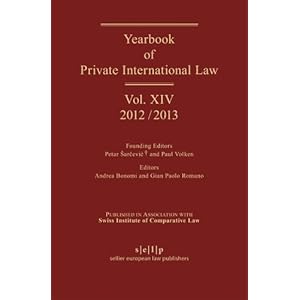On August 27th, 2013, the U.S. District Court for the Southern District of New York held in Corporación Mexicana de Mantenimiento Integral, S. de R.L. de C.V. v. PEMEX–Exploración y Productión that an arbitral award made in Mexico could be enforced in the U.S. despite being nullified by a Mexican Court.
The arbitration was conducted in Mexico City in accordance with the rules of the International Chamber of Commerce. The plaintiff was a subsidiary of a Texan company, the defendant an instrumentality of the Mexican state.
In September 2011, the Mexican Eleventh Collegiate Court on Civil Matters of the Federal District held that the award was invalid, because the arbitrators were not competent to hear and decide cases brought against the sovereign, or an instrumentality of the sovereign, and that proper recourse of an aggrieved commercial party is in the Mexican district court for administrative matters. The court based its decision in part on a statute that was not in existence at the time the parties’ entered their contract.
The U.S. Court held that the Mexican judgment violated basic notions of justice in that it applied a law that was not in existence at the time the parties’ contract was formed and left the plaintiff without an apparent ability to litigate its claims. As a consequence, it declined to defer to the Mexican Court’s ruling, and confirmed the Award.
French courts also enforce awards nullified in their country of origin. An important difference in the US doctrine is the focus on the foreign judgment nullifying the relevant award. U.S. court in principle defer to judgments nullifying arbitral awards and thus enforce them. In Termo Rio, it was held:
when a competent foreign court has nullified a foreign arbitration award, United States courts should not go behind that decision absent extraordinary circumstances not present in this case.
The US Court distinguished this case from Termo Rio and Baker Marine, where US Courts had deferred to foreign judgments:
this is a very different case from Baker Marine and from TermoRio. In neither of those cases did the annulling court rely on a law that did not exist at the time of the parties’ contract. In both Baker Marine and TermoRio, the nullification was based on the failure of arbitrators to follow proper procedure. The courts of Nigeria and Colombia did not hold that the cases could not be subject to arbitration, and therefore there was no contradiction between the government entities’ agreements to arbitrate and the courts’ rulings. Here, in contrast, the Eleventh Collegiate Court ruled that the entire case was not subject to arbitration based on public policy grounds, a ruling that was at odds with PEP’s own agreement, the PEMEX enabling statute, and the law of Mexico at the time of contracting and the commencement of arbitration.
H/T: Sébastien Manciaux



 In 2013, the European Law Institute (ELI) and UNIDROIT agreed to work together in order to adapt the 2004 Principles of Transnational Civil Procedure developed by the American Law Institue and UNIDROIT from a European perspective and develop European Rules of Civil Procedure. This project will take the 2004 Principles as its starting point and will develop them in light of: i) the European Convention on Human Rights and the Charter of Fundamental Rights of the European Union; ii) the wider acquis of binding EU law; iii) the common traditions in European countries; iv) the Storme Commission’s work; and v) other pertinent European sources.
In 2013, the European Law Institute (ELI) and UNIDROIT agreed to work together in order to adapt the 2004 Principles of Transnational Civil Procedure developed by the American Law Institue and UNIDROIT from a European perspective and develop European Rules of Civil Procedure. This project will take the 2004 Principles as its starting point and will develop them in light of: i) the European Convention on Human Rights and the Charter of Fundamental Rights of the European Union; ii) the wider acquis of binding EU law; iii) the common traditions in European countries; iv) the Storme Commission’s work; and v) other pertinent European sources. The 1st exploratory workshop, to be held in Vienna on 18 and 19 October 2013, aims at an initial analysis of a series of different topics, ranging from due notice of proceedings to enforcement, with a view to identifying the most promising issues and the most appropriate methodological approach for the project. The event will be divided into a public conference, scheduled for 18 October, and an in-depth workshop for invited participants following the public discussion, which should lay the foundations for the elaboration of the ultimate project design by the ELI and UNIDROIT.
The 1st exploratory workshop, to be held in Vienna on 18 and 19 October 2013, aims at an initial analysis of a series of different topics, ranging from due notice of proceedings to enforcement, with a view to identifying the most promising issues and the most appropriate methodological approach for the project. The event will be divided into a public conference, scheduled for 18 October, and an in-depth workshop for invited participants following the public discussion, which should lay the foundations for the elaboration of the ultimate project design by the ELI and UNIDROIT. The latest volume of the
The latest volume of the